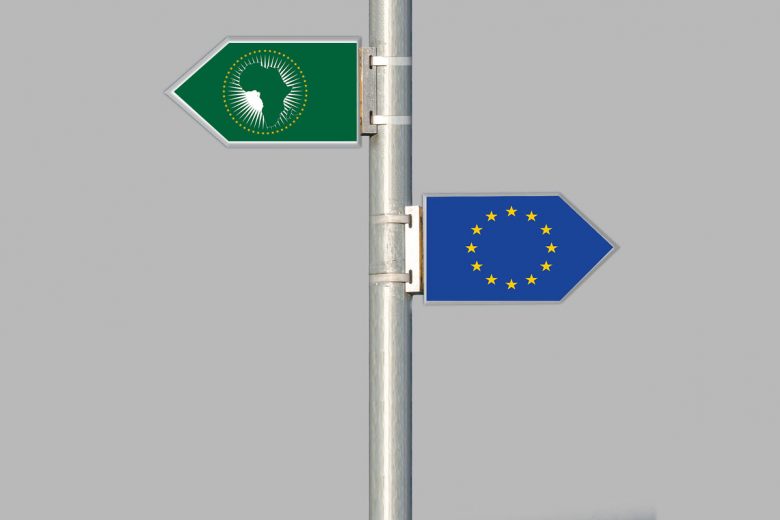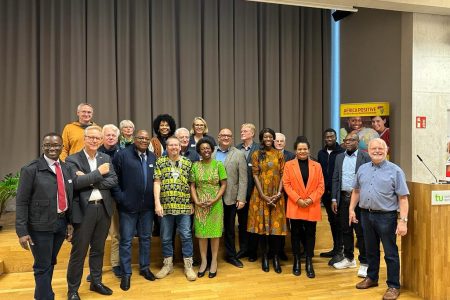Among the summit’s declared intentions; to enable legal immigration from Africa to Europe for employment, curb refugee flows and defeat the smuggling gangs. Now that China has become more active in Africa, Europeans have realised that they are no longer guaranteed exclusive rights to African raw materials. Against this background, they’ve declared a willingness to reorient their partnership with Africa: away from short-term development assistance, and towards long-term investment and sustainable trade relations.
For years, negotiations on Economic Partnership Agreements (EPAs) between the European Union and the ACP nations (Africa, Caribbean, Pacific) have been stalled. According to the EU, EPAs should promote the economic development of these countries and help lift people from poverty. However, the opposite is often the case: OxFam has reported that, in their current form, these EPAs are far-reaching free trade agreements that would mainly benefit European exporters.
African countries had sought to negotiate with the EU in regional blocs. However, the EU is using its considerable resources to break up these blocs, even while officially praising such regional integration. Meanwhile, EU agricultural subsidies are already leading to unemployment for many African farmers. How much must the poverty of the Africans increase?
Although Egypt has now been suspended by the African Union (AU), it has been invited by the EU to the summit, thus undermining the AU’s democratic guidelines and weakening its options for action. In general, the summit dealt with refugee, development and trade policies.
Is development policy in the Southern countries, as currently understood, simply battling the symptoms of the problems rather than the underlying causes?
In my judgment, Europe’s commitment to current development policy and its concomitant (if not directly required) economic exploitation through their economic policies are in fundamental contradiction. The causes of these conflicts are the precious raw materials which, in countries such as the Congo, are very rich. To term them “tribal conflicts” is false. Meanwhile, the dying continues.
European industry is dependent on these raw materials to produce all sorts of technological goods. Recently, the EU Commission tried to restrict the trade in raw materials from conflict zones more rigorously. The attempt failed, however, due to the successful lobbying by the Federation of German Industry. Supporting national industries is legitimate for any government on our planet, of course, but one must not lose sight of the implications. It is clear that there is a causal connection between resource extraction and conflicts in many so-called developing countries.
As a result of such conflicts, individuals voluntarily or involuntarily leave their homes. In Libya alone, some 600,000 people from sub-Saharan Africa are waiting in hopes of transport to Europe. A number as large as the population of Stuttgart or Dortmund! Only a small proportion of these refugees actually make their way to Europe, in hopes of finding peace, protection and prosperity. However, once arriving at the gates of Fortress Europe, refugees are confronted with barbed wire, walls and border patrols as if they were wartime invaders.
Where are the human rights and the empathy that we constantly talk about?
“Our” resisters are always freedom fighters, the “others” terrorists? It seems that, if the profit is right, we are more than willing to go to bed with the devil himself. Are not we too easily trampling on these human rights when it provides advantages for our economy and affluent society?
Blood diamonds, coltan, copper, uranium, gold, – pick any of the wealth of treasures in our earth. Find a ruthless, power seeking and money hungry dictator who oppresses and exploits his people for the so-called free market economy. Find the poor, the disenfranchised, who hope despite everything, to have a piece of the cake. And what do you have in the end? Our World Economic Order. Precisely. And almost entire nations held as the private property of dictators and global corporations. The millions of people in the Congo and elsewhere who die every day from the weapons we sell – do they also have human rights?
Today many of these countries still have adequate natural resources, but yet are seemingly unable to meet the basic needs of their populations. Odd, as it was just these kinds of resources which guaranteed our prosperity here in Europe. In my opinion, the current form of development policy serves only to display our benevolence. Our concern for the South is but a hypocritical cloak, hiding our greed. Its main purpose is to maintain the status quo so long as the industry has secure access to the raw materials.
Yet the question remains: do we really want to see honest, practical and sustainable changes in the countries of the South? Are we also willing to accept such changes if their consequences are disadvantages for our own prosperity?[:]



